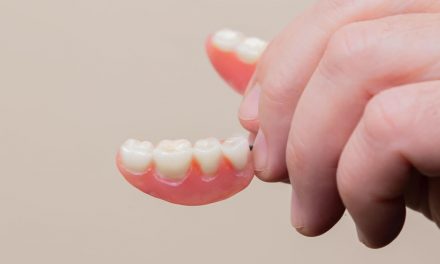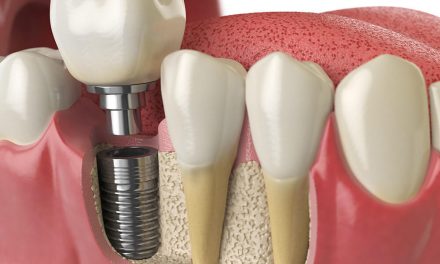What do dentures cost?
Anyone who needs a denture will usually also think about the cost of dentures. But what should the new teeth cost, why does it seem so expensive, and can I even afford these new teeth? We at NextSmileDental will shed some light on these questions for you.
Because it is not possible to realistically give a cost estimate of dentures here in an article and would be more than likely inaccurate we like to explain it with the following analogy. What does a car cost? No general answer can be given to this because there are so many variants and brands from small cars to luxury vehicles, the prices of which vary greatly based on construction details and performance features.
A similar situation pertains with dentures. There are various types of dentures – removable, fixed, implant-supported, etc. The materials used, for example all-ceramic, and the implementation options regarding the individual colour and design, all influence the cost. The cost of dentures will also be influenced by the state of the patient’s teeth and mouth, and his or her expectations.
Dentures are individual and special
Dentists, often in close cooperation with the dental technician, produce the dentures individually for every patient. Every dental prosthesis requires manual work, even though digital production techniques, in the form of CAD/CAM technology, are increasingly being used to support them. Therefore, one should not try to penny-pinch when it comes to dentures. Dentures are medical products that have a beneficial effect on the patient’s health.
Therefore, we at NextSmileDental recommend that you don’t try to save in the wrong place! Your new dentures will be used every day and will be subjected to great stress in your mouth. But talk to your dentist about the different denture options available to you. There is usually a suitable option for every situation that will combine durability and high quality.
High quality materials for dentures
Modern materials for dentures are incredibly versatile, as they have to be. After all, the new dentures should last a long time and still look good years later. Durable and resistant materials are required for this. The materials used should be biocompatible and well tolerated by the patient. In addition, it must withstand the acidic oral environment and the various temperatures encountered in the mouth, for example hot tea or coffee, the freezing cold of ice cream, the acidity of lemon juice, etc.
It is also important that the dentures should not discolour, even if the patient occasionally enjoys a glass of red wine, or likes to eat dishes containing turmeric. And, of course, they should ‘look right’. Ideally, the dentures should look just like a natural, healthy teeth. Therefore, the raw material for the new teeth should be able to be refined by the dentist or dental technician so that the new teeth will look like the patient’s own teeth. And last, but not least, the material must be easy to process in the dental practice or laboratory, to guarantee a perfect and comfortable fit.
Dental materials science and dentistry have made great strides in recent years. There are various materials that meet the requirements listed above. These include zirconium oxide, all-ceramic materials, hybrid materials, composites, gold alloys, titanium, even steel. This ensures that the right high-quality material can be chosen to suit the patient’s oral situation, expectations and financial resources.
The craft and technology needed for making dentures
Dentures are not taken out of a drawer or made automatically by a computer or machine. To be able to make a high-quality dental prosthesis requires comparatively long and often arduous training. The specialized dentist or dental technician has usually completed an intensive course of study or apprenticeship. In addition, manual skills and aesthetic sensitivity are required.
In a dental laboratory or a dental practice that is certified to manufacture dentures, a high degree of technical expertise is required of the dentist or dental technician. Likewise, highly specialised machines and equipment are also needed. These include intraoral scanners, face scanners, laboratory scanners, laser devices, as well as CAD/CAM milling machines and 3D printers. These are just a few examples of the machines that are used today to design and manufacture dentures.
And dentures take time!
The specialists who will manufacture your dentures, will require time from you, the patient. This will include time for:
• An information and counselling session
• The clinical diagnostics
• The individual cost estimate and discussion of alternative solutions
• A thorough analysis of the situation regarding your mouth and face
• An assessment of the function of your temporomandibular joints
• A decision regarding the shape and colour of your new tooth or teeth, and
• the production of a trial tooth replacement and testing it in your mouth.
It will therefore require some time until your dentures are actually manufactured and available. However, these steps are essential for the dental professionals to supply you with long-lasting, functional and aesthetically pleasing dentures. There are also additional steps and optional ‘add-ons’ that patients like to take advantage of.
Consult your insurance for the cost of dentures
So your dentures are not really expensive. Talk to your dentist and ask about the different options and cost models that are available. As a rule, the right solution can be found to suit every patient’s circumstances. Many dental practices work together with special denture insurance or billing companies, so grants are often possible, and/or installment plans can be put in place.
Always remember, good dentures are an important building block for your health.
If you calculate the price for a denture based on its long service life and its daily level of use, it quickly becomes clear that a good denture is worth its price.





